CPSC Ban and Recall of Inclined Sleepers
Updated Jan 14, 2023 Beginning in mid 2022, any product intended or marketed for infant sleep must meet a federal safety standard. This is a result of years of ongoing recalls, complaints and government intervention. The CPSC Ban and Recall of Inclined Sleepers affects rockers, pillows, nappers and other sleeping devices.
CPSC Ban on Inclined Sleepers – A Quick History
In January 2023, the Consumer Product Safety Commission and Fisher-Price re-announced the Recall of Rock ‘n Play Sleepers. The announcement originally happened in 2019 and soon extended to other brands of newborn and infant items.
Since the 2019 recall, approximately 70 more fatalities have been reported. How could this happen?
- It’s almost impossible to enforce recalls at secondary retailers like TJ Maxx, Amazon resellers or Facebook Marketplace. Seeing these items for sale, it’s fair that parents would assume the problem was fixed, or for a different product.
- People who didn’t have babies in 2019, were unaware of sleepers being pulled from stores.
- Some products re-branded. In one instance, the manufacturer Baby Delight continued to sell its Nestle Nook. They simply changed the name. The Nestle Nook went from a ‘napper’ to a ‘lounger.’
Whatever the reason, it is crucial to know that while the CPSC cannot confirm the circumstances of every single fatality, the recalls happened because products marketed as “infant sleepers” are inherently unsafe.
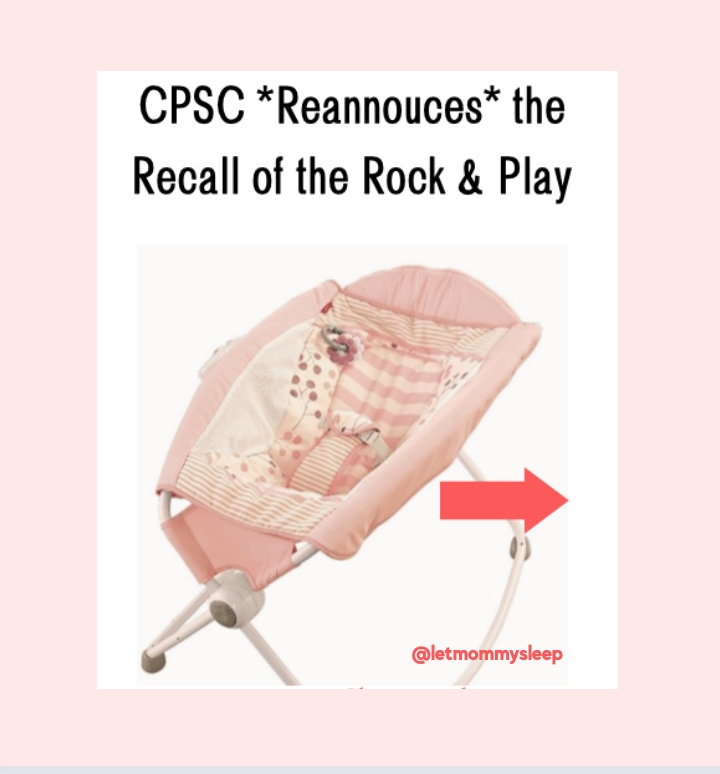
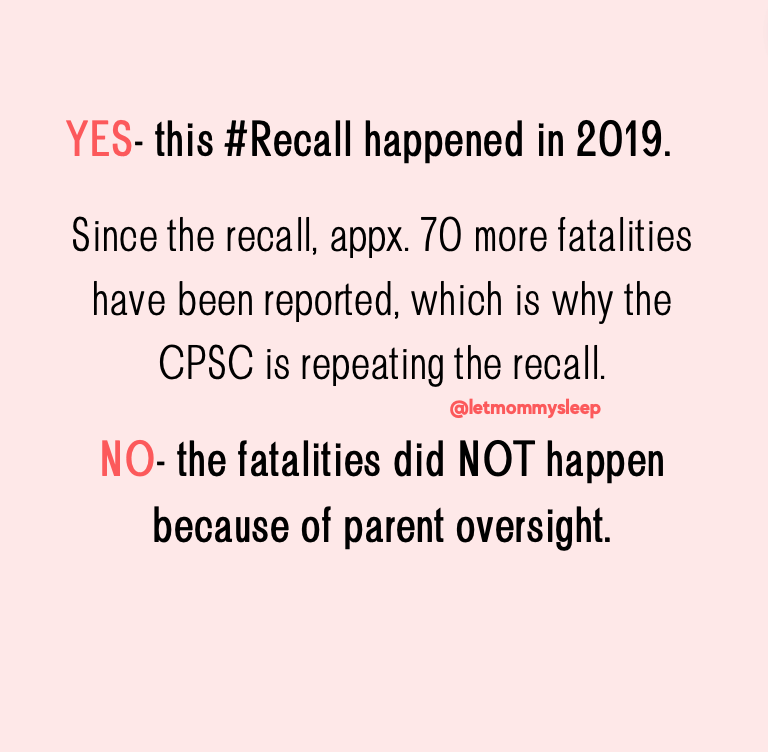
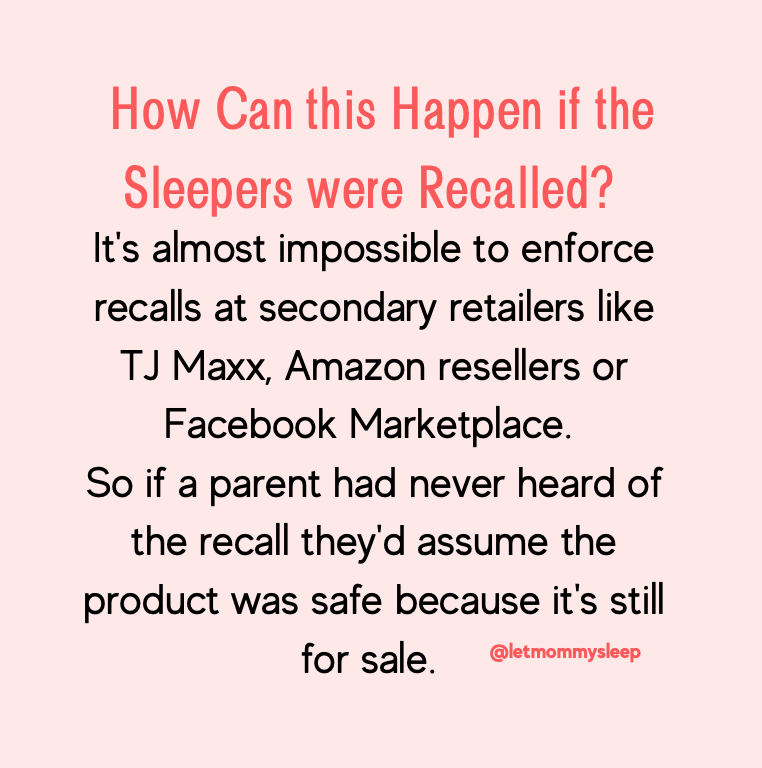
On June 7, 2021, Fisher-Price was finally made to answer for keeping the RocknPlay on the market. A bi-partisan House Oversight Committee asked company officials how the products could remain on the market, after not only ignoring safety warnings, but also knowing that infant deaths occurred as a direct result of using their product. Additionally, Rep. Michael Cloud (R-Tex.) pointed out, Fisher-Price only consulted with “one doctor with a checkered past before marketing the Rock ’n Play.”
These findings resulted in the ban on products being marketed as infant sleepers.
CPSC Ban and Recall of Inclined Sleepers – Now What?
- Incline sleepers like the RocknPlay are banned for sale as sleep devices. They have been since 2019.
- There are options to get more sleep without these devices though.
- Consumer Reports explains why it’s okay for baby to fall asleep in a car seat but not a sleeper, below:
To learn how these products came to market and stayed there for 10 years, see the continuing must-read Consumer Reports research.
Rachel Rabkin Peachman, Deputy of Special Projects at Consumer Reports who has been working on this information for over a year, answers your questions:
Why are sleepers being banned now, specifically? Did parents not follow product directions?
The Consumer Product Safety Commission has warned against using infant inclined sleepers, and the agency has voted in favor of banning the entire category because the products increase the risk of infant suffocation and death- -NOT because the sleepers were misused by caregivers. Infant inclined sleepers have been linked to deaths even when the products were used according to the company’s instructions—and even in cases where the baby was buckled into the restraint system and did not roll over.
The products are inherently unsafe for infants due to their design:
- First, the products go against the safe sleep recommendations from the American Academy of Pediatrics, which state that babies should be put to bed alone, unrestrained, on their backs, on a firm flat surface that is free of soft padding. Inclined sleepers like the Rock ‘n Play Sleeper are not flat, they have restraints, and they have padded sidewalls.
- Second, babies heads are heavy in proportion to their body size and neck strength, and the product’s incline enables their heads to slump forward—often chin to chest or chin to shoulder—which compresses the trachea and blocks airflow. The lack of oxygen can lead to suffocation.
- Third, the shape of many inclined sleepers enables babies to roll over earlier than they would typically on a flat surface (see below). And once they roll over in an inclined sleeper, they typically end up with their faces pressed against the soft sidewalls of the sleeper or pressed against the padded headrest of the sleeper, both of which can block airflow to the nose and mouth. Infants don’t have the strength or coordination to turn themselves around and move into a safe position that allows them to breathe.
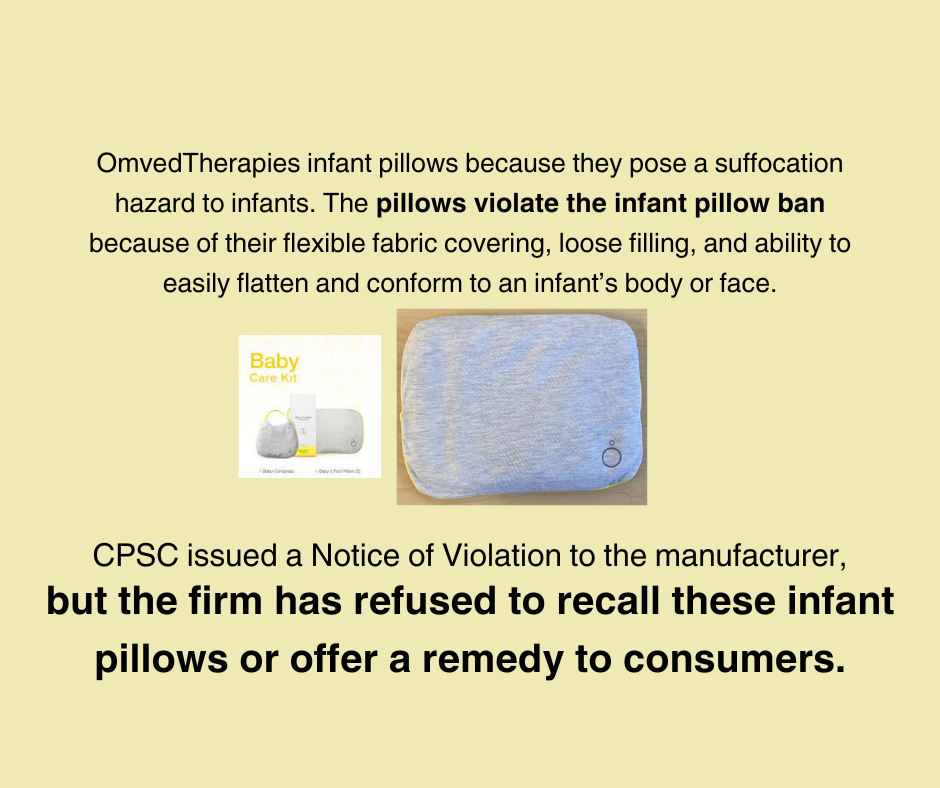
And recent study outlines the CPSC Ban on Inclined Sleepers
Here is an excerpt from the article:
The agency announced the findings of a new study it had commissioned, led by Erin Mannen, Ph.D., an expert in biomechanics and a professor at the University of Arkansas for Medical Sciences, on how babies moved and breathed while at an angle between 10 and 30 degrees.
Her conclusion: “None of the inclined sleep products that were tested and evaluated as part of this study are safe for infant sleep.”
Among her findings: Placing babies in inclined sleepers makes it easier for babies to roll over because it puts them into a scrunched up position—similar to a fetal tuck—that allows them to roll over earlier than they would be able to manage on a flat surface. That explains, she says, why many parents said their babies had never previously rolled over yet were found dead, in some cases while restrained, face down on their stomach in the sleeper.
Why is it okay to have baby in a car seat in the car, but not a rock n play?
To answer that question in detail, please see this article, “Is it Okay for Babies to Sleep in Car Seats?” or watch the video below. Also, here’s a news article on our (Consumer Reports) coverage comparing car seats to inclined sleepers:
A quick quote from the article: “The answer is, yes, you can let your baby sleep for short stretches in a car seat, as long it’s used properly.” – Emily A. Thomas, Ph.D., an automotive safety engineer at CR’s Auto Test Center who is also a specialist in pediatric injury biomechanics and a certified child passenger safety technician.
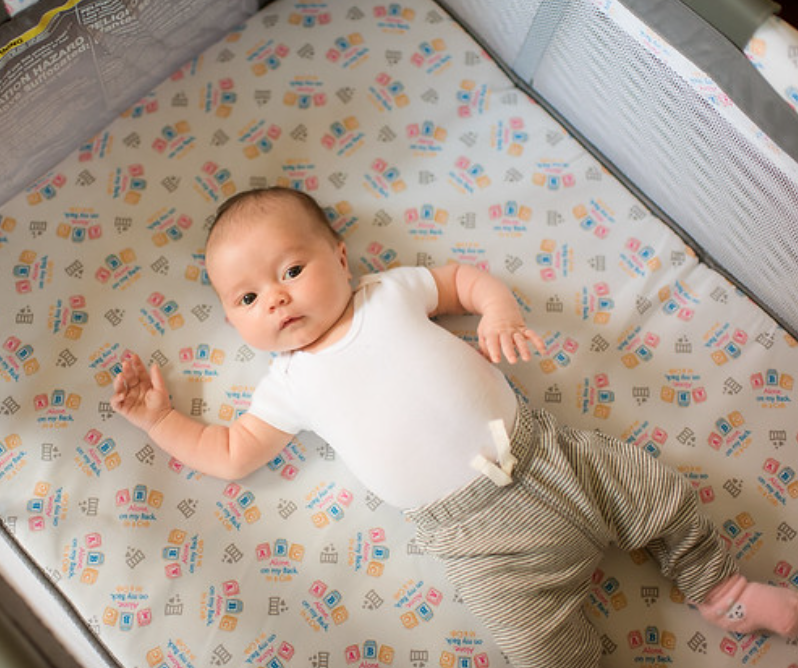
CPSC Ban on Inclined Sleepers -does it include swings?
The AAP does not recommend swings (or bouncy seats) for extended sleep. Swings pose some of the same risks that inclined sleepers pose. (Swings have not been safety tested the way car seats have; swings typically don’t have a five-point harness to prevent slumping; and swings are not necessary for car travel.) If your baby does fall asleep in a swing, the safest thing to do is to move him or her to a firm, flat crib or bassinet.
As a mom of two children, I know it’s hard to move a sleeping baby. And I know that many parents feel their babies sleep well in inclined products. But that doesn’t mean the products are safe. The products put babies at risk for death, and it’s just not worth the risk.
For more and continuing coverage on infant safety, please follow Rachel Rabkin Peachman on Twitter, @RachelPeachman.
How am I supposed to help my baby sleep without a rocker?!
After so much time curled up in the womb though, babies might wake up more often than their usual when placed to sleep flat on their backs. To ensure parents are maximizing their own sleep and reduce the temptation to use an unsafe sleeping product, we suggest getting on a staggered sleep schedule as parents.
A staggered sleep schedule is explained in this video but essentially means parents taking shifts either by blocks of hours or by night. So each adult is “on” and awake during their shift to respond to their baby’s needs.
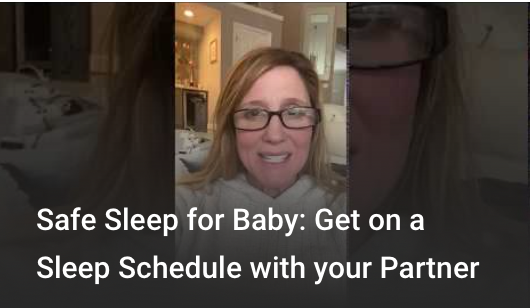
Categories
- Baby Care Classes
- Baby Care How-To's
- Baby Sleep
- Family Activities with Baby
- Feeding
- Franchise & Company Info
- Hiring Help
- Our Favorites
- Postpartum Health
- Safety & First Aide
- Twins & Multiples
- zArchives
